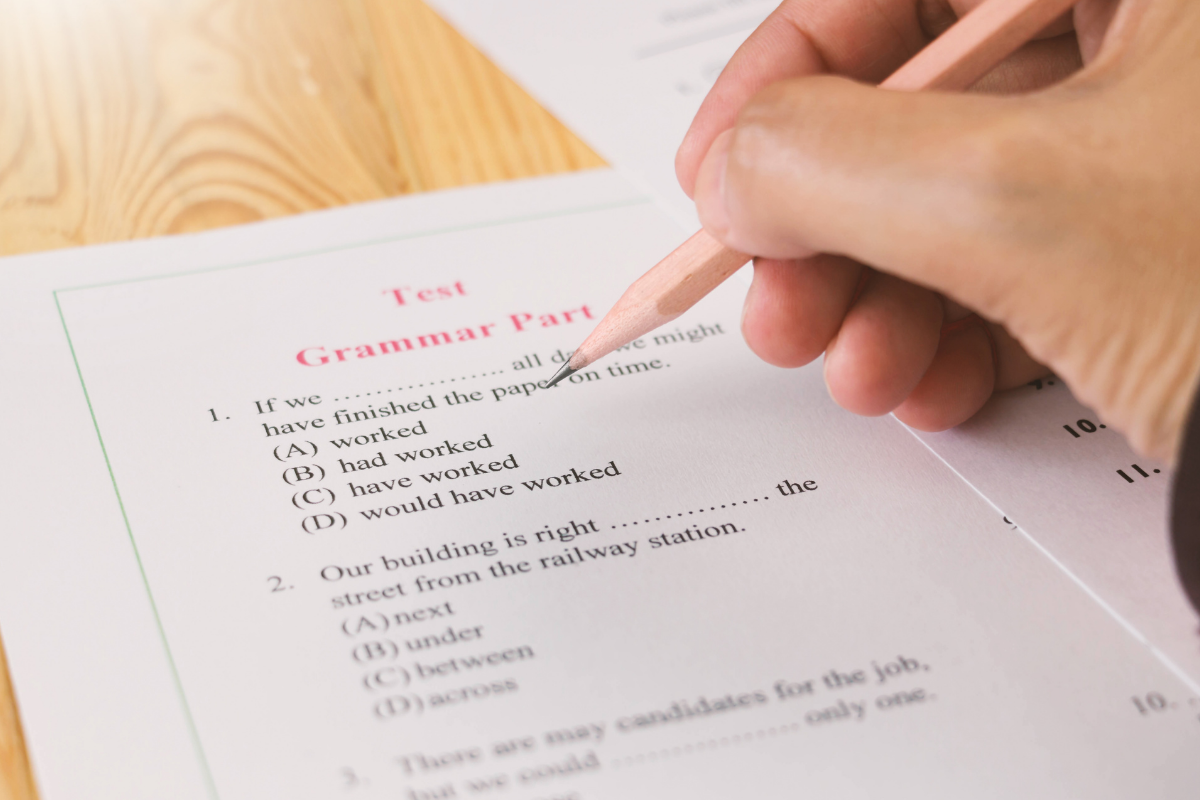
Advice, Tips & FAQs for IELTS Preparation
Please keep in mind that some of the links in this post are affiliate links. In the event of a sale, I will be awarded a small commission (at no extra cost for you).
This is a guest blog by KCR Consultants. Visit their website to find out more about IELTS Coaching and study abroad opportunities.
If you plan to study abroad, you must have heard of IELTS, the International English Language Testing System. This test is necessary for international students who wish to study in native-English countries such as Australia, Canada, the UK, and the US. The IELTS test determines your ability to speak, write and understand the English language, and you will be marked on a scale of 1-9 according to your English proficiency. As a student, you will have to focus on academic reading and writing. To study in the UK or the US, you will need intense preparation to achieve a higher band in IELTS.
Read on to find out some valuable tips for IELTS coaching and preparation.
How should you prepare for IELTS?
Over 3.5 million people from all over the world appear for IELTS every year. However, many of them do not get the desired band and have to reappear for the test. So, you require consistency and discipline. For best preparation, you can sign up for IELTS coaching.
Listening
The first section in IELTS is the listening exam for 30 minutes. You will hear four sound recordings in different accents. To enhance your listening skills, you can listen to podcasts, watch English movies and documentaries in various accents. Listening to TED Talks is also a good option. If you face trouble in understanding spoken English initially, you can watch movies or documentaries with subtitles. During the IELTS test, you will be able to listen to the recordings only once. Therefore, you must listen to the audio, and understand and grasp the important points in one go.
Reading
The reading section comprises three excerpts from books, newspapers, journals, or magazines. To improve your reading ability, you should make reading a habit. However, you must try to read a variety of content. Don’t stick to only books. You can also read blogs, magazines, and newspaper articles. This will improve your reading speed.
Another technique you must learn and practice is skimming through necessary content to understand the gist of it. While reading you must also pay attention to the tone of the writer and the purpose of writing. You should avoid using a dictionary while reading and try to figure out the meanings of words. This will improve your vocabulary. Even if you come across a foreign word, you will understand the context without using a dictionary.
Writing
There is a big difference between spoken and written English. During IELTS, you have to write in a formal tone. For essay writing, the first step is to prepare a structure. It makes it easier to write and also builds flow. While rich vocabulary is essential, writing clear and crisp sentences is the key. Use more active voice than passive sentences. Also, make sure to avoid long paragraphs.
Speaking
This section is where a lot of people face difficulties. It is also normal for people to get nervous during the interview. Therefore, to improve your speaking skills, you can start reading out loud. It will also help you with pronunciation. To boost your confidence, practice speaking in front of a mirror. To master the art of speaking fluently, you should avoid using filler words like, ‘literally’, ‘you know’, etc. Make sure that you practice direct answers rather than beating around the bush. Also, work on your speed. If you have a habit of speaking too fast, try to slow down and take breaks in between. You should also initiate conversations in English with your friends and family.
Some tips to remember while preparing for IELTS
- The best way to gauge your preparation is to attempt mock tests and go through sample questions. You can easily find sample tests on the official IELTS website or British Council website. Practice as much as you can.
- Along with the overall IELTS score, colleges also focus on section-wise bands. To score well in IELTS, it is crucial that you give equal importance to each section instead of preparing for one or two.
- Your focus should be on improving your English rather than just preparing for IELTS. It will help you in the long run.
- Time is of the essence during the IELTS. So, to save on time, train yourself in such a manner that you don’t have to go through the entire passage. Read relevant lines and try to figure out the underlying message.
- Practice preciseness. In the exam, you will have to write the answer in the exact number of words.
IELTS FAQs
What is the minimum IELTS score to get admission to foreign universities?
Canadian universities accept at least 6.5 bands for undergraduate studies and 7.0 for postgraduate studies. Universities in the UK accept IELTS scores between 6.5-7. You can check the admission requirements of universities you wish to study at.
Is it compulsory to give IELTS if I wish to study abroad?
The majority of foreign universities accept IELTS scores for English language proficiency. However, you can go to a particular university’s website to know if they accept other English language test scores.
What is the IELTS test format?
The IELTS test is divided into four sections; listening, reading, writing, and speaking. There will be multiple-choice questions, tables, diagrams, true-false, classifications, and more.
Can I clear the IELTS if I am not proficient in English?
With practice and persistence, you can learn English and get a good score on the IELTS test. You can also seek the help of a professional and sign up for IELTS coaching.
Are you preparing for the IELTS exam? Do you have any good study tips? Share them in the comments below!

K C Raj is a socialist in thinking, and believes in “One Nation, One World” theory.
K C Raj is a career counselor and recruiter with many years of experience. Interested in topics like human development, education, immigration, inequality, and many other international issues.





